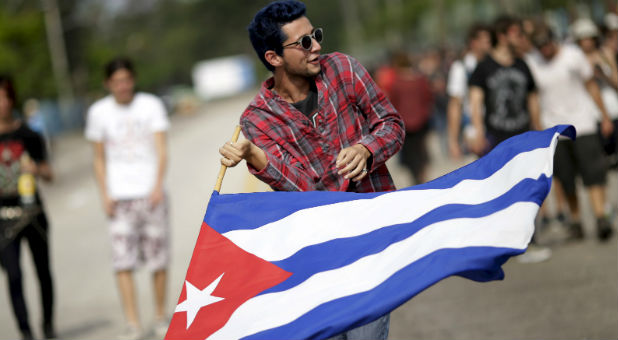Is Democracy Possible in Cuba?
In December of 2014, President Obama declared a policy change focused on building a new relationship between the United States and Cuba.
The American Embassy in Havana reopened in August of 2015 and the President visited Cuba in March of 2016, the first such visit by a U.S. President since 1928. In an attempt to offer friendship and assistance to President Raul Castro, President Obama quoted a line from the well-known Cuban poem, “Cultivo una rosa blanca,” which roughly translated means “I grow a white rose.” Obama’s decision to reach out to the Cuban people was historic.
For the last 54 years, the effects of communism have taken their toll on the island of Cuba. Initially, the United States responded aggressively to the communist takeover by severing its diplomatic relations with Cuba, and sanctioning the newly communist nation.
These sanctions have failed to accomplish their purpose of punishing the communist regime for violating the fundamental human rights of its citizens. Instead, these sanctions have harmed the Cuban people. After a half-century, the United States and Cuba have resumed diplomatic relations, and many are discussing the possibility of a gradual democratization of Cuba.
The process of democratization is a difficult one. Throughout the late 20th century, many European nations attempted to transition from communistic and socialistic systems to democratic systems. One of the best examples of this transition was the transition experienced by Germany. Shortly after World War II, the nation of Germany was divided. Russia controlled East Germany and West Germany became a free democracy under the influence of the United States. After the Berlin Wall fell in 1989, East Germany began its transition toward democracy.
Germany’s successful transition was partly due to half the nation’s status as an established and stable democracy. Instead of being bullied into change by a nation with a different culture and history, East Germany accepted the ideology of democracy offered by their Western brothers and cousins. The two nations simply merged and implemented the structure that was already established in West Germany.
Despite these ideal circumstances, Germany’s transformation into a democracy was arduous. Many in East Germany complained that dramatic changes were made too quickly. Some of these changes were not thoroughly explained to East Germans, who were skeptical of the new government. A more gradual process, with Western Germans educating East Germans, would have provided East Germans with a smoother and more effective transition.
Germany’s successes and failures provide an excellent comparison for Cuba’s democratization. Like West Germany, an entire group of Cubans has experienced life in a democratic nation. The Cuban community in America has benefited from democracy and capitalism and they are best suited to introduce their Cuban brothers and cousins still on the Island to the ideals of freedom. Only when Cuban nationals understand the benefits of a free society and have the support of the free world will they be able to stand up to the communist regime.
The United States chose to take an active role by sanctioning Cuba’s communist regime. These sanctions have harmed Cuban nationals more than any other group, and the United States has a duty to change course. If done effectively, President Obama’s decision to restore relations may provide nationals with the support they need to overturn the communist regime. While these changes are exciting, the United States must carefully weigh the possibility that its newfound relationship with Cuba may further solidify Castro’s communist regime, and thus further hurt the Cuban people.
It remains to be seen whether the renewed diplomatic relations between the United States and Cuba will have their desired effect of promoting democracy. But there are other ways that democracy can be promoted. If the embargo between the two nations is lifted, it would allow travel and communication between the nationals in Cuba and the Cuban community in the United States. Communication between these two groups could prove vital in helping Cuban nationals see the benefits that freedom and a democratic society could provide them.
Cuba’s future rests in the hands of Cuban nationals, Cuban exiles and the United States government. Endeavors to encourage democracy may prove to be successful if gradually and thoughtfully implemented. The United States would be prudent to follow the successful path plotted by Germany, and provide Cuban Americans with the opportunity to assist their Cuban relatives in the quest for a free Cuba.
Although predicting the Island’s fate is impossible, it is possible to appreciate that all Cubans desire peace and prosperity for their home. Ultimately, ”the strength of the human spirit and the character of the Cuban people” will determine Cuba’s future. The American people have offered Cuba their friendship and a lending hand; it is now up to the Cuban people to accept the rose.













